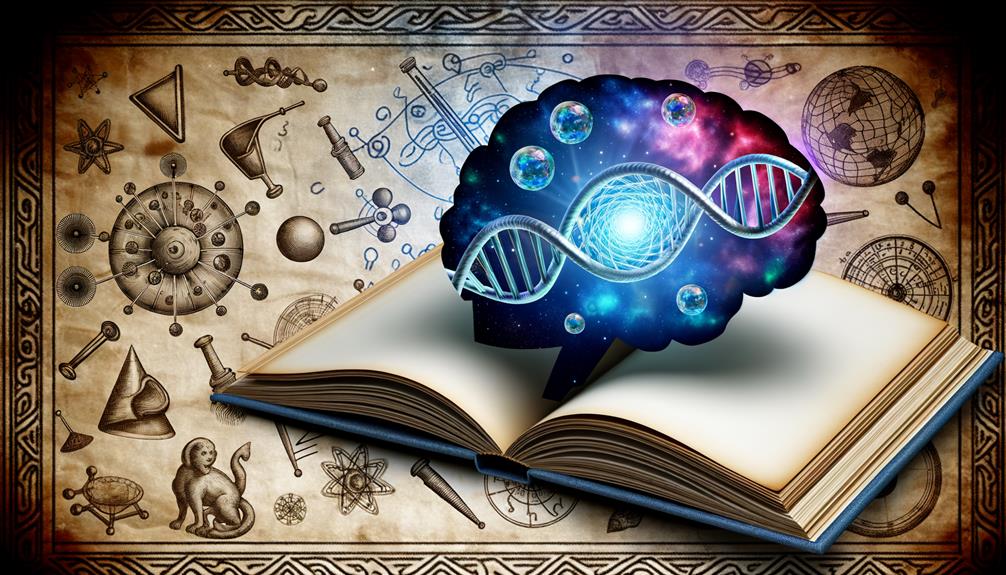Did you know that humanity’s collective scientific knowledge doubles approximately every nine years? That’s a startling pace of discovery, isn’t it? Now, consider this: what exactly do we mean when we talk about ‘science’? Is it a method, a quest, or a body of knowledge? You might say it’s all of the above, but there’s a lot more to it.
As we explore the purpose and definition of science, we’ll uncover intriguing complexities that’ll surely pique your intellectual curiosity.
Understanding the concept of science
To truly appreciate the role science plays in our lives, you need to grasp its fundamental concept first. It’s not just about white lab coats, test tubes, and complex formulas. At its core, science is a systematic approach for understanding the natural world. It’s a quest for knowledge that’s driven by curiosity and exploration.
Science is built on the principle of empirical evidence. It’s not about what you think or feel, but what you can prove. You observe nature, gather data, and use this information to make sense of the world. Every scientific theory you’ve heard of, from gravity to evolution, is based on this principle. They’re not just ideas someone dreamt up. They’re conclusions drawn from careful observation and analysis.
The methodologies used in science
Having understood the basic concept of science, let’s now take a look at how scientists actually go about their quest for knowledge – the methodologies they employ. These methods form the backbone of scientific inquiry, allowing researchers to systematically and objectively explore the natural world.
Your first step in the scientific method is to make an observation. You might notice an unexplained phenomenon or a problem that needs solving. From this, you develop a question and form a hypothesis – a tentative explanation or prediction based on what you’ve observed.
Next, you test your hypothesis through experiments, ensuring to control all variables except the one you’re studying. This helps you avoid confounding factors, keeping your results reliable and valid.
After conducting your experiment, you analyze your data. If your findings support your hypothesis, great! But even if they don’t, that’s okay too. In science, ‘failure’ often leads to new questions and hypotheses, pushing knowledge forward.
Limitations of scientific inquiry
While science’s quest for knowledge is undeniably powerful, it’s not without its limitations that you must consider. Despite its rigorous process and empirical approach, there are inherent boundaries that can curb its reach.
Firstly, science is confined to the observable and measurable. It can’t tackle questions of morality, aesthetics, or spirituality. You can’t use science to determine if a painting is beautiful or if an action is morally right.
Secondly, science isn’t immune to bias. Despite its objective nature, human interpretation and bias can skew scientific results. As a researcher, you’ve got to be cautious about how your own beliefs could influence your findings.
Lastly, science can’t provide absolute proof. It can offer strong evidence supporting a theory, but it can’t conclusively prove anything. This is because scientific knowledge is always evolving, with new discoveries often challenging existing theories.
The purpose of science
Despite these limitations, let’s not forget why science plays an essential role in our lives – it aims to understand the natural world and how it operates. Its primary purpose is to build and organize knowledge in the form of testable explanations and predictions about the universe.
Think about it. Every time you flip a light switch, you’re relying on centuries of scientific exploration and understanding. The laws of electricity were discovered, tested, and refined by scientists, and now you get to enjoy the fruits of their labor. That’s the power of science.
But science isn’t just about making life easier; it’s about curiosity and pushing the boundaries of what we currently know. It’s about asking questions, testing theories, and finding answers. It’s about the thrill of discovery and the pursuit of knowledge.
In fact, one could argue that the true purpose of science is to keep us in a state of wonder and constant learning. It’s a tool for us to better understand and appreciate the intricacies of the world around us. So, science isn’t just a collection of facts; it’s a journey of discovery. And isn’t that truly something special?
Science’s role in knowledge acquisition
You mightn’t realize it, but science is deeply ingrained in our process of acquiring knowledge. It’s the backbone of how you understand the world around you. Whether it’s figuring out why the sky is blue, how plants grow, or what causes diseases, you’re using science to gain knowledge.
Each time you ask a question, form a hypothesis, and seek answers, you’re engaging in the scientific method. This process isn’t just for lab-coated researchers. It’s a fundamental part of learning, and it’s how you satisfy your natural curiosity.
But science doesn’t just provide answers. It also teaches you to question what you know, to seek evidence, and to be critical of the information you receive. It’s not about accepting facts blindly but understanding the process by which those facts are established.
Conclusion
So, you’ve journeyed into the heart of science – a quest for knowledge, driven by methods that probe the universe’s mysteries. Sure, it has limits, but its purpose remains clear – to understand and explain.
It’s a key player in how you acquire knowledge, shaping your understanding of everything around you.
Always remember, science isn’t just a subject, it’s a way of thinking, a tool for discovery and a path to wisdom.










